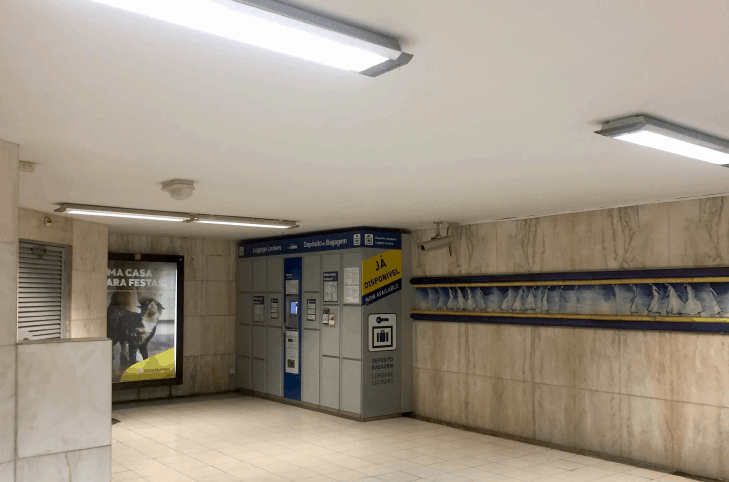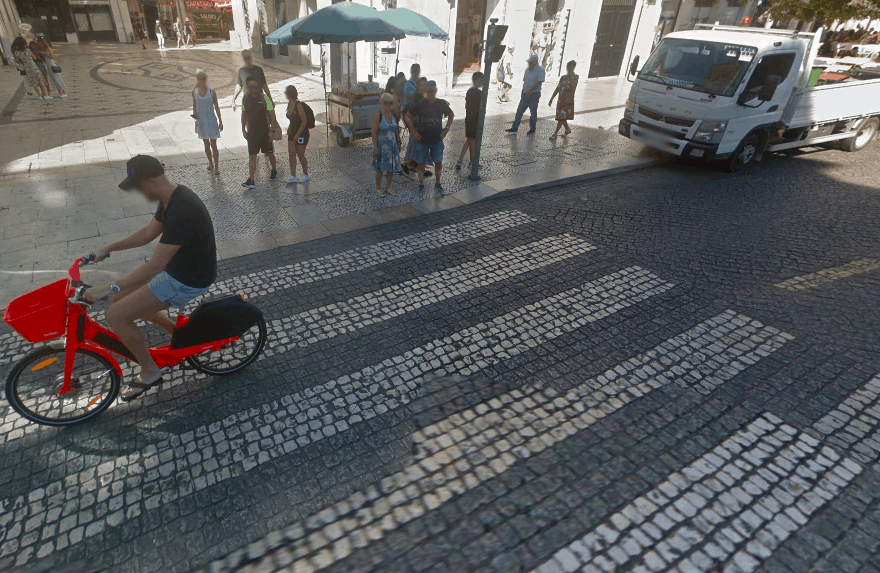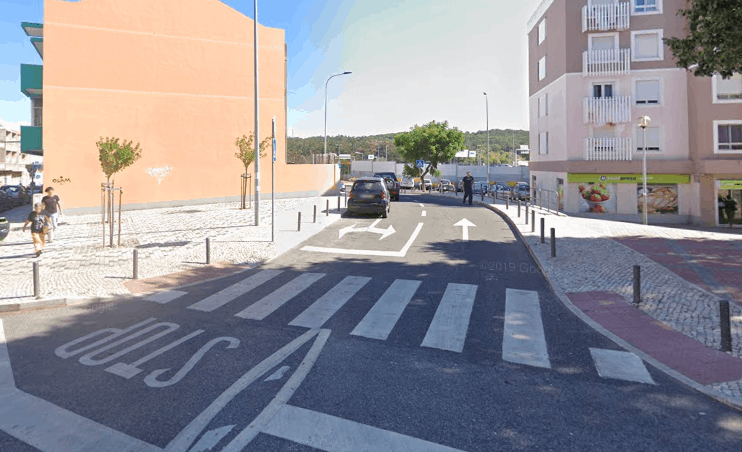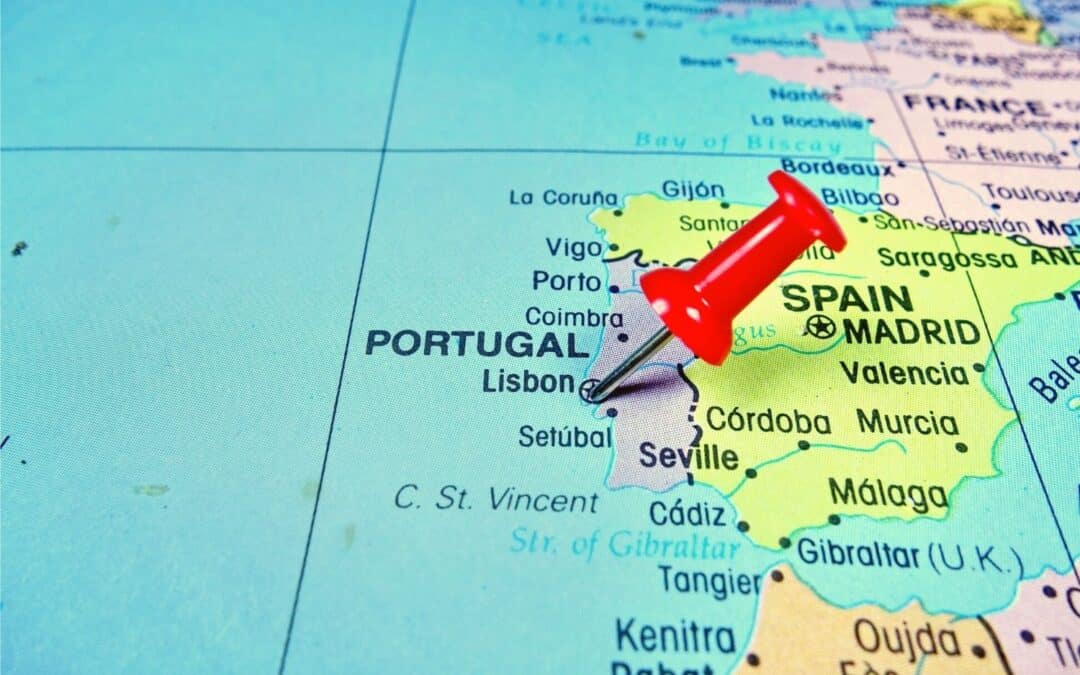If you are travelling to Portugal any time soon, you want to plan it just right so you have a worry-free time when you get there. There are a few Portugal-specific tips you will be glad you prepared for – and that’s what this article is for.
Portugal is a developed country with world-class medical facilities and one of the safest travel destinations in the world. Still, you will be glad of any insider tips that will take the guesswork out of your Portugal travel preparation.
These are the Portugal travel topics we will be covering in this article:

- Booking your Portugal accommodation
- What to pack for your Portugal trip
- Portugal safety tips
- Ubers and taxis in Lisbon
- Luggage storage options before your Portugal accommodation check in time
- Pedestrian and road safety in Portugal
1. Booking your Portugal accommodation
You might have your Portugal accommodation figured out by now and you plan to do what you always do. You’re probably about to book a hotel room, or maybe book an apartment through a home-sharing platform like Airbnb or Booking.com.
There is nothing wrong with any of those options, and if you have already made your booking, that’s fine.
If you haven’t booked your accommodation yet, consider the following:
If you’re staying in Lisbon, consider booking your short-term accommodation through a platform where hosts list their homes more cheaply than in Airbnb/Booking.com. Check Sabbaticalhomes.com, particularly if your stay in Lisbon is for 2 weeks or longer.
You can often find cheaper deals on Sabbaticalhomes because hosts don’t need to register their homes with the fiscal authorities, like with Airbnb. Prices are all the more negotiable if you offer to pay cash.
Granted, Sabbaticalhomes – designed originally for academics on sabbatical – doesn’t offer as many automated assurances as Airbnb because you deal with the host directly. But if you’re on a tight budget, it might be worth it.
Personally, I know a few people in Lisbon who rent out their homes through Sabbaticalhomes and never heard of any problems. Nevertheless, it’s a good idea to draw up some kind of written agreement with your host regarding any deposits and rent payment terms before you arrive.
If you haven’t booked your accommodation in Portugal, or if you can easily cancel it without penalties consider also the following:
If you’re staying In Portugal for longer than a few days and opted to rent a short-term apartment (Airbnb or the like), it might be a good idea to ask your host –
- Does your accommodation have a washing machine? And if it does, does the apartment provide a means or place where you can dry your clothes?
You might take it for granted that all rental apartments come with a washer and dryer, but that is not always the case in Portugal.
Whereas most rental apartments in Portugal have a washing machine, very few come with a clothes’ dryer. Added to that, some rentals lack a clothes line – exterior or interior – where you can hang your clothes to dry. (Some hosts must hope their guests won’t need to wash clothes, and that if they do they can dry them over the back of chairs.)
In short – think about what your clothes-washing requirements might be during your stay and make sure the apartment you book is equipped to meet those requirements.
- Does your accommodation have an internet connection fast enough for your needs? Just about any kind of accommodation in Portugal offers free Wi-fi these days, just don’t expect for it to be fast.
Most internet in Lisbon is from an ADSL connection – it makes use of home phone lines that haven’t been well-maintained for years.
If your internet needs are limited to FaceTiming and keeping up with your favourite Netflix series on your laptop, the typical Lisbon internet ADSL connection will do just fine.
But if you need to make important Zoom calls for work, or if you need to upload videos and other heavy files on a regular basis, a typical ADSL connection won’t be enough. Instead, you will want to stay somewhere that offers fibre optic internet – or “fibra”, as it’s commonly called in Portugal.
In short – if you feel you will be needing the internet for more than surfing the web at no great hurry, ask your host what type of connection their accommodation provides. And if it’s ADSL, know that it won’t be very fast, despite what your host says (not because your host is lying, but because they are going off what their internet provider states in the contract – which is usually wrong).
2. What to pack for your Portugal trip
Apart from the clothes and toiletries you would normally pack, there are some things you should not forget to take on your trip to Portugal.
- Pack a travel electrical adaptor:
If you come from outside Europe, from America or Australia, say, or even from the UK, remember that Portuguese electrical outlets are different than those in your home country. You will need an electrical adaptor for your phone charger, your camera battery charger, electric toothbrush, and so on.
You can buy these adaptors in travel stores, or you can buy them online. If you travel frequently you might like this nifty Skross world travel adaptor which adapts every plug there is to any kind of outlet anywhere in the world – one of my absolute travel essentials. Keep it in your carryon luggage so that you can use it at airports during layovers.
2. Pack your mobile phone (of course!) and make sure it is unlocked so that you can buy a local Sim card when you arrive in Portugal and save on roaming charges.
Even if you don’t plan to make that many calls while you are out and about looking at the sites in Portugal, you will need regular access to the internet – to consult Google maps, to book an Uber, and so on.
You can buy a local prepaid Sim card at any internet provider store in Portugal (many have stores at Lisbon airport and in downtown Lisbon, like Vodafone). Their Sim cards come with a local phone number and good data plan deals that will save you from exorbitant roaming charges.
But your phone needs to be “unlocked” to accept a Sim card different to the one you use at home. For older generation iPhones, that’s certainly the case. You can unlock your iPhone at Apple stores, and usually also anywhere that services mobile phones.
3. Pack comfortable walking shoes
Lisbon and most other cities in Portugal have their streets paved in small cobblestones.
These often come in entrancing black and white patterns, which add to the many charms of Portugal’s urban streetscapes.
But cobblestones are killers on your feet after you do any amount of walking if your shoes have thin soles.
And forget thin heels – like stiletto heels, and also any heels with a narrow base.

If you plan to wear stilettos to a special event in Portugal, pack also a pair of flat shoes of the ballet flats variety (like this affordable pair available on Amazon).
The cracks between the cobblestones will ruin your stiletto heels when they don’t snap them off altogether. You’ll be glad you can wear the ballet flats from the car park to the event’s entrance, then tuck them away in your purse for the rest of the night while you swan around indoors in your heels. (You’re probably already familiar with the stiletto-ballet flat swap trick, and Portugal is definitely the place to put it in practice).
In short – even if you are just going to Portugal for a series of indoor work meetings, count on wanting to venture out on the street at some stage. Trust me – you’ll be glad you packed a comfortable pair of walking shoes. And if you’re taking your stilettos, remember also to pack your ballet flats.
3. Portugal safety tips
Portugal came third in the Global Peace Index of 2020, meaning that it is currently the third safest country in the world after Iceland and New Zealand. But this doesn’t mean that Portugal is devoid of petty crime – it’s not, and tourists are often targets.
By petty crime I mean pickpocketing in particular. It’s a common occurrence, especially in urban centres wherever people gather in tight crowds – such as in public transport and in crowded events.
Follow these easy tips to avoid having your pockets picked:
- Don’t carry your wallet in your back pants’ pocket or in an open purse
Your wallet is best carried in a handbag or backpack that can be zipped closed. In both cases keep the zipper where you can see it at all times. This might mean that you carry your backpack on your chest, instead of your back.
2. Reach for your wallet whenever someone bumps into you
Pickpockets usually operate in twos or more, where one person might bump into you to distract you, while another reaches for your wallet. The trick is to reach for your wallet before they do.
3. Don’t hang your backpack or handbag off the back of your restaurant chair
Keep your backpack/handbag between your knees while you sit at a restaurant or cafe. If you’d rather not place it on the floor, keep it in a vacant chair next to you or where you can keep an eye on it.
4. Don’t display your latest generation mobile phone when travelling alone in public transport
The risk here is bag snatching as well as pickpocketing.
A fancy mobile phone, or any other expensive gadget, will signal that you might have your pockets full of cash. Personally, I am especially alert when I travel alone in public transport after dark in Portugal. I keep my phone tucked away so I don’t attract undue attention. Note: I don’t know anyone who has been mugged or whose bag has been snatched in Portugal, but I still think this is good advice.
5. Carry only the cash and documentation you need
This tip is not just about pickpockets but also about the real possibility that you might lose your wallet.
Technically you are meant to carry your ID at all times – meaning your passport, in many cases. But really that’s just so that if something terrible happens to you, you can easily be identified by the authorities.
Instead I suggest you carry a photocopy of your ID document and keep the real version securely stored back at your accommodation. The same goes for any other document – your drivers licence, etc – that you will not be needing everyday during your stay in Portugal. As for cash, don’t carry more than you need and generally avoid displaying it.
4. Ubers and taxis in Lisbon
If you’re already familiar with ubers and other ride-sharing options in your home country, you’ll know that you can save money by catching ubers instead of taxis.
Taxis in Portugal are probably more affordable than what you are used to, but ubers are even more so and a popular choice also because of the convenient Uber app.
I only have a couple of tips about ubers and taxis in Portugal, but they might save you some stress:
- If you’re arriving in Lisbon or Porto airports, choose a taxi instead of an uber to get you to your destination
Ubers are not allowed near airport arrivals and you’ll have to lug your luggage quite a distance until you reach an uber pick up point. Opting for a taxi will save some headaches.
If you want to save money, consider catching public transport to your destination. Easily done in Lisbon, where the airport has a metro station (“Aeroporto”) and regular trains take you directly to the city center for less than 2€.
2. Keep in mind that some neighbourhoods in Lisbon have limited vehicle access
This is certainly the case with the neighbourhood of Alfama, Mouraria and Bairro Alto.
If you book a taxi or an uber to/from these neighbourhoods, you’ll need to first familiarise yourself with the closest point with vehicle access. I advise finding the closest street with plenty of traffic so you can be sure your pick up ride finds you easily.
5. Luggage storage options before your Portugal accommodation check in time
If you arrive in Lisbon hours before you check in time, you’ll have to face the problem of what to do with your luggage until then.
If you’re staying at a hotel, you will probably be allowed to leave your bags at reception until your room is ready.
But what if your accommodation is an Airbnb apartment, where the check in is after 3pm? In this case you have two options that don’t involve lugging your bags with you for hours:
- Ask your host if it’s possible for you to drop off your bags before check in time
It might be that your host will have to say no, but it’s worth asking.
Your host will say no if the apartment is being prepared for you by one or more cleaners at that time. You arriving at their apartment that’s not ready yet, and the added risk that you will begin asking questions from the cleaners (who are not usually paid or trained to check in guests), is something that all hosts are keen to avoid.
But it might be that the accommodation has already been prepared well before check in time, in which case your host might be available to let you in earlier.
2. Store your heavier bags in a luggage locker until check in time
Most bigger train stations in Portugal have luggage lockers.
And if you arrive in Lisbon, the downtown metro station of Rossio has luggage lockers for large bags. This is probably also the case in other metro stations in Lisbon, but Rossio’s is especially handy because it’s the epicentre of Lisbon with lots to see and keep you occupied for hours.

In some underground parking station in downtown Lisbon, such as the one under Praça da Figueira and Praça Martim Moniz, you will also find luggage lockers that you can rent by the hour.
Related: Get the know-how on understanding Portuguese directions, read How Portugal Addresses Work: 8 essential tips to keep in mind
6. Pedestrian and road safety in Portugal
Pedestrian safety in Portugal
Portugal is one of the countries in Europe where cars drive on the right-side of the road. If you come from a country where cars drive on the left-side you are used to crossing roads by looking left-right-left.
Keep in mind that in Portugal you should be crossing the road after looking right-left-right.
This might sound obvious, but you’d be surprised how many tourists you see taking unnecessary risks in the streets of Lisbon by not checking first for the traffic from the right. My husband is Australian and my frequent travel companion in Lisbon, so I know what I’m talking about.
Keep also in mind that in Lisbon the stripes you might see across the road and which look a lot like a pedestrian crossing – also known as a zebra crossings – do not in fact mean that traffic will stop for pedestrians.
Just know that there are 2 different types of striped road crossings in Portugal.
- Pedestrian striped crossing at traffic lights
If the pedestrian stripes are crossing a road at a point where there are also traffic lights, pedestrians are to wait for the green pedestrian light.


2. Pedestrian striped crossing with no traffic lights
If the pedestrian stripes are crossing a road at a point with no traffic lights, vehicles are meant to stop and give way to pedestrians. Most vehicles comply but don’t automatically assume they will.
Road safety in Portugal
If you intend to rent a car while in Portugal and if you’re not that used to driving in Europe and/or on the right-side of the road, I strongly recommend that you first take some time to familiarise yourself with Portuguese road and traffic signs.
Fortunately you can easily do this online and for free. Head over to the website traffic-rules.com and select Portugal. You will be able to quickly check what all the road signs look like and what they mean, just in case they look different to what you’re used to.
Happy travels in Portugal!






